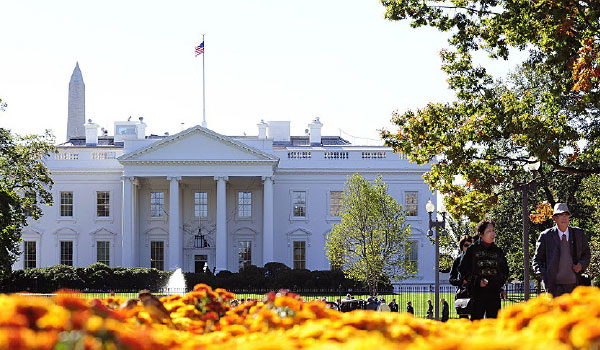WASHINGOTN - As the Trump administration refused to provide funds for training of Pakistani officers for the next academic year, the US military institutions are trying to fill the 66 slots they kept for cadets from Pakistan, Dawn.com said in a report on Saturday.
The fund for training Pakistani officers came from the US government’s International Military Education and Training Program (IMET) but no funds were made available for Pakistan for the next academic year, the report said.
The US National Defense University in Washington DC has had reserved seats for Pakistani officers over the past decade, according to the report.
The outgoing Pakistani officers, however, were told that the university has been asked to fill the positions for the next year with officers from other nations, Dawn said in the report.
The university is one of several US military institutions that train officers from Pakistan.
This comes after the United States Congress made a significant cut to the security-oriented financial aid to Pakistan earlier this month.
The National Defense Authorization Act (NDAA) for 2019 ramped up the military spending and avoided policy changes that would have antagonized US President Donald Trump.
In the latest NDAA, the security aid to Islamabad — that had once started from almost $750 million per year to $1 billion — was marked down to a mere $150 million. However, it also relaxed certain conditions that were attached with the financial assistance, including action against the Haqqani Network and the Lashkar-e-Taiba (LeT), AFP said in a report on August 3.
This crucial reduction translates into the fact that the Pentagon might not have any tools to pressurize Pakistan into taking action against the banned militant outfits. The US had earlier used these funds to ask Islamabad to do more with regard to the counter-terrorism operations, especially against the Haqqani Network.
Lately, the Trump administration, which has become quite active in trying to make the Afghan peace talks work, has been pushing Pakistan to help bring the Taliban to the negotiating table in order to reach a deal with Kabul's government.
“This is an unfortunate and ultimately counterproductive decision. There are certainly ways to send a strong message to Pakistan, but this isn’t the way to do it,” Michael Kugelman, an expert of Pakistan affairs at a Washington think tank, the Wilson Center, said as quoted by Dawn in a report today.
“This move could squander what little goodwill and trust remains in the military-to-military relationship, and it reduces the likelihood that Pakistan will act in the ways that Washington would like it to act,” he said in the report. (Tolo news)
Home » Afghanistan » US Cuts Military Training Programs for Pakistan
US Cuts Military Training Programs for Pakistan

